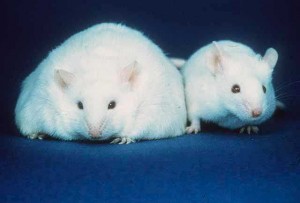WEDNESDAY, 18 APRIL 2012
The researchers fed mice a high-fat and high-sugar diet along with a twice-daily dose of the two compounds for a period of 12 days. The mice displayed marked weight loss despite their high calorie diet, even though they moved 15% less than non-drug treated mice. Instead, the animals' weight loss appeared to be due to increased energy usage in tissues where gene expression is dependent on circadian rhythms. Not only did the mice lose weight, their cholesterol levels fell by 47% and their blood triglycerides (sugars) by 12%. High cholesterol is linked to numerous heart conditions and elevated triglyceride levels in the blood can lead to diabetes; these compounds may thus have the potential to prevent or cure many weight-related disorders.What's more, the benefits of these compounds may not be limited to the overweight. Administration of the compounds affected the mice's activity in light and dark periods, suggesting that they could also be used to treat sleep disorders, such as jet lag. However Thomas Burris, who led this research, is keen to stress that "this is really the first step" as these compounds are the first to hit their targets in vivo, so much opportunity remains for further development and improvement.
Written by Milly Stephens
doi: 10.1038/nature11030

